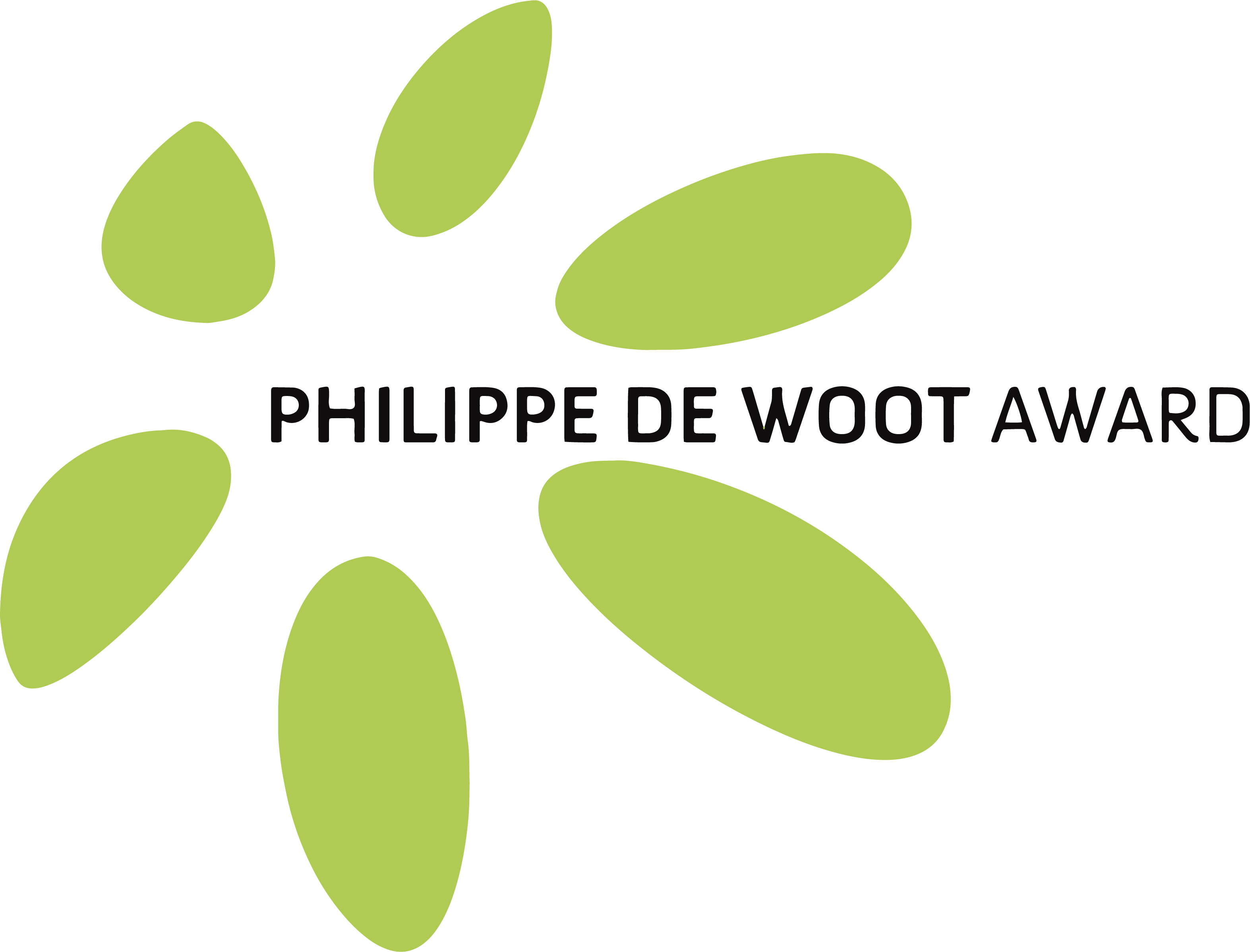The Philippe de Woot Award Ceremony 2014
Results

© picture by ULB
The third edition of the Philippe de Woot Inter-University Award took place on February 18, 2014, at the Solvay Brussels School.
The award, which rewards Master theses linked to the field of Corporate Social Responsibility (CSR), went to Sylvia Feilhauer, from the Erasmus University of Rotterdam (The Netherlands). Her Master thesis on “The product carbon footprint: Advantages of the supply chain and Conditions necessary for sharing information”, was unanimously selected by the international jury, meeting the criteria of the double filter of the academic jury for the first selection, and then the stakeholders jury , made up civil society and company leaders.
Sylvia Feilhauer, 27, currently Senior Business Analyst with A.T. Kearney in Zurich, was chosen among 25 other candidates- including students who received their Master degree from the CEMS international network of management schools. For the first time in the history of the Inter-University Philippe de Woot Award, the Master theses submitted originated from every continent. The theses were evaluated according to criteria such as originality, quality of research, scientific rigour and significance at a practical level. The academic jury first selected a short list of four Master theses. These Master theses were then presented by the candidates to the stakeholders jury , which selected the best work produced.
She was awarded a prize to the value of the equivalent of €3,000, €1,500 of which will go to an environmental or social project. She has selected to contribute to the construction of a school project in India.
The guest of honour for this ceremony was Bertrand Piccard, chairman and founder of the Solar Impulse project. He was accompanied by other Belgian notables and key foreign figures, including: Philippe de Woot, writer and professor emeritus of the Université catholique de Louvain; Bruno Van Pottelsberghe, Chairman of the Solvay Brussels School; and a large number of managers of SMEs and multinational companies.
Keynote speakers
About Bertrand Piccard (on the right picture)
Bertrand Piccard, born in 1958 in Lausanne, is a Swiss psychiatrist and aeronaut, who successfully completed the first round-the-world balloon flight (March 1 to 21, 1999) in the Breitling Orbiter 3 balloon. He is the son of the oceanographer Jacques Piccard and the grandson of the physicist Auguste Piccard. In 2003, Bertrand Piccard joined forces with the Swiss Federal Institute of Technology in Lausanne and the pilot André Borschberg to develop a solar airplane project. In 2004, his project of circumnavigation in a solar glider: Solar Impulse, becomes reality. Solar Impulse successfully completed its first international flight, from Payerne (Switzerland) to Brussels, 630 kilometers, in 13 hours of flight, at an average speed of 50 km/h and at an altitude of about 6,000 feet on May 13, 2011. Bertrand Piccard is doctor honoris causa 2008 (Catholic University of Louvain).
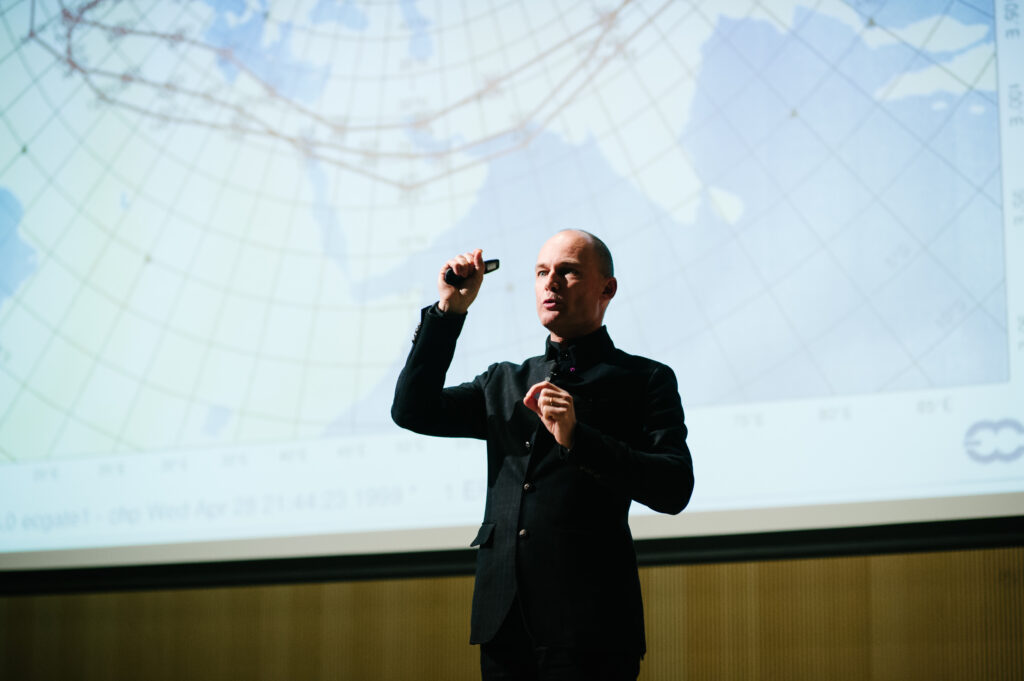
© picture by ULB
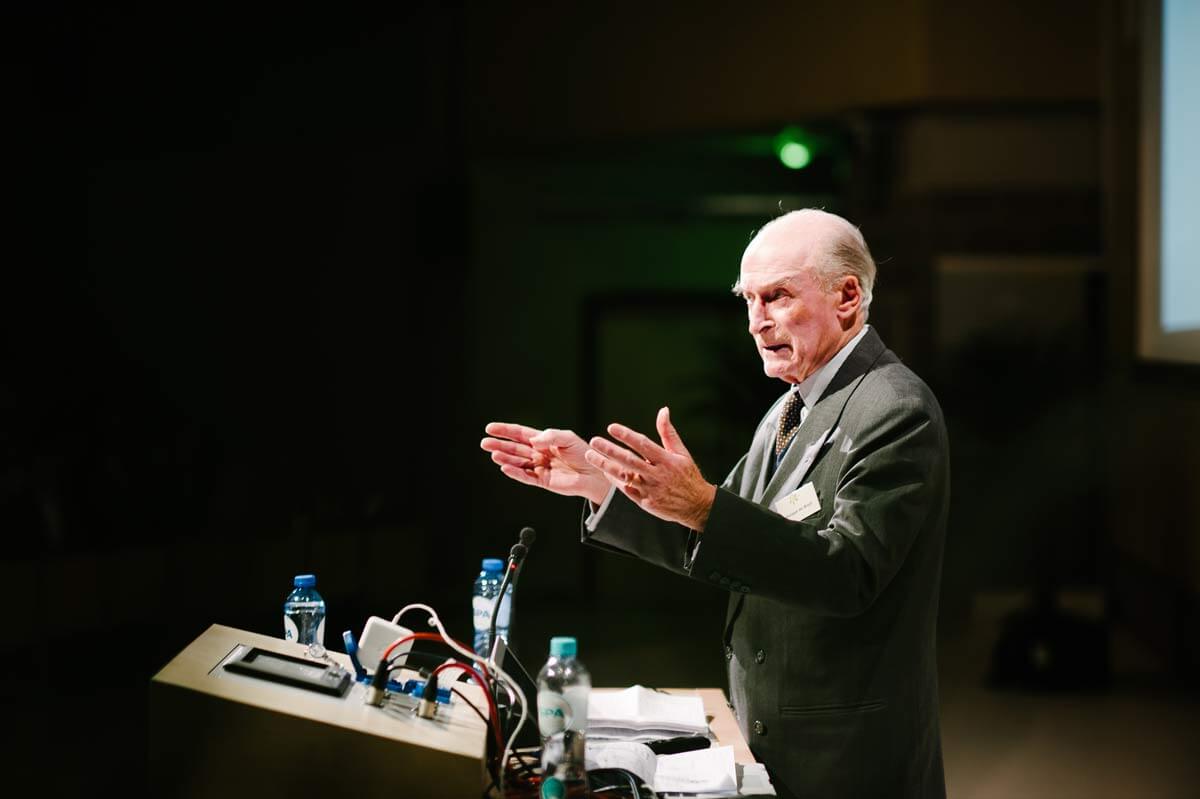
© picture by ULB
Philippe de Woot (on the left picture), professor emeritus at UCLouvain, comments:
« The laureate’s dissertation must make an original contribution in the field of responsible business. The great interest of an inter-university approach is to encourage business schools in Belgium and elsewhere to cooperate on these themes, to develop research and training of students in societal responsibilities as well as dialogue with the business world. The underlying vision of the Prize is that economic and social actors can mobilize a great capacity for innovation and entrepreneurial dynamism to better orient our global economic model towards a more sustainable development. This implies a transformation of the corporate culture itself, well beyond the adoption of simple « good practices »...

Organization and nominees
Applications have been examined in two steps:
- Annick CASTIAUX – Université de Namur, Belgium
- Nathalie CRUTZEN – HEC-Liège, Belgium
- Brigitte HUDLOT – ICHEC, Belgium
- Kevin JACKSON – SBS-EM, ULB, Belgium
- Luc VAN LIEDEKERKE – Antwerp Management School, Belgium
- Rudy MARTENS – Antwerp Management School, Belgium
- Katerina NICOLOPOULOU – Strathclyde Business School, Scotland
- Eleanor O’HIGGINS – University College Dublin, Ireland
- Valérie SWAEN – Louvain School of Management, Belgium
- Laszlo ZSOLNAI – Corvinus University of Budapest, Hungary
- Sarah DEKKICH – CSR Europe
- Sabine DENIS – Business & Society Belgium
- German GRANDA – Foretica
- Michel GENET – Greenpeace
- Laura GUTIERREZ – World Savings & Retail Banking Institute
- Christophe KONINCKX – CSR Expert & Communication
- Jean-Luc DE WILDE – Mobility Expert & Social Entrepreneur
- Jan NOTERDAEME – TEC & CSR Europe
- François TASMOWSKI – Mc Cain Foods
- Ann VANDENHENDE – Spadel
- Roger VERCAMMEN – Former CSR Manager Sony
- Volodymyr VOROBEY – CSR Ukraine Community
- Gefei YIN – WTO China
To view the program of the 2014 Philippe de Woot award ceremony

Among the 25 submitted master’s thesis, the academic jury selected the 4 following dissertations:
Project 1
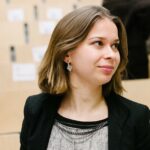
Sylvia FEILHAUER
© picture by ULB
Product Carbon Footprinting: Supply Chain Benefits and Necessary Conditions for Information Sharing
Sylvia FEILHAUER (Erasmus University of Rotterdam – The Netherlands)
The newly emerged concept of product carbon footprinting requires a company to audit its supply chainin order to determine and possibly reduce itscarbon footprint. Yet, gatheringrelevantdata can be a costly and time consuming task and companies often face resistance from supply chain partners that do not share the required information. This study demonstrates that product carbon audits are a means to create value in supply chainsand formulates concrete guidelines on how companies can facilitate information sharing in thissetting.
Project 2
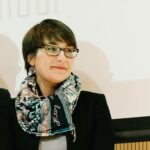
Céline SAMBON
© picture by ULB
An analysis of 3 credibility factors of green advertising and their cultural variations
Céline SAMBON (Louvain School of Management, UCLouvain – Belgium)
This master thesis focuses on the difficulties faced by companies to communicate their CSR activities. More specially, it investigates which advertising elements positively influence the credibility of green advertising regarding consumer’s culture . The results confirm that companies can evaluate the effectiveness of their green communication through attitudes and purchasing intentions. They also show that formulating objectives to be reached allows the company to achieve a stronger credibility in a long-term oriented country. For instance, showing balanced information (i.e. its also weaknesses or mistakes ) might be beneficial when the company combines this type of speech with quantitative and progressive objectives. Moreover, as it seems that culture matters, multinationals should not be satisfied with a unique multi-country communication.
How can pharmaceutical companies and institutions increase access to essential medicines in low-income countries with a global response?
Robin DIERCKX(Louvain School of Management, UCLouvain – Belgium)
This paper aims to give a complete overview of the access to medicines (ATM) landscape, and aims to give tools to companies, institutions and policy-makers to further improve ATM in low-income countries. More especially, this paper presents practices in two leading companies actively using tiered pricing schemes (Janssen and GSK). The analysis strongly suggests that manufacturers can overcome the typical problems associated to DP and tap its potential in terms of growth opportunities. However, doing so requires (1) an initial investment, (2)managerial willingness to overcome the associated problems, and(3) the development of expertise on low-income countries. In a second time, this paper shows that acting to lower the prices is also a valid strategy to overcome ATM issues. This can be done with the help from policy makers by designing policies with two types of objectives: (1) increasing the positive impact of generics by augmenting their market share; or (2) increasing the positive impact of originators by stimulating differential pricing, which was further investigated in this paper.
Project 4
Alessandro CAMPO
Corporate responses to climate change and financial performance: the impact of environmental strategy and innovation
Alessandro CAMPO ( Università Commerciale Luigi Bocconi – Italy)
This paper analyses the relationship between firm’s environmental performance and market value. More especially it investigates the relationships between carbon intensity and financial performance, with a specific focus on the role of strategy and innovation on a sample of companies operating across 28 countries and 10 sectors. Results show that investors and financial markets are still cautious about considering corporate responses to climate change as positive signals for their financial valuations. Moreover, firms engaging in more structured and comprehensive environmental strategies do not translate their efforts into an effective reduction of carbon emissions. Paybacks of climate change related strategy typically produce their effects over the years and may not manifest themselves in the 5-year time horizon considered in this study. On the other hand, innovations are tangibly transferred to carbon emitting processes, and they constitute a key driver for environmental performance. It also appears that companies that are more exposed to carbon risks are more likely to implement strategies to control and lower greenhouse gas emissions and engage in efficiency related measures which are not necessarily linked with green innovation.
2014 Partners
Academic partners

Corporate partners & contributors

Are you interested in the Philippe de Woot Award?
The next edition will be organized in March 2026 in Louvain-la-Neuve.
Any graduate student from a university or business school with a Master’s degree whose dissertation deals
with CSR or sustainable development defended during the academic years 2023-2024 & 2024-2025 can apply for this award.
